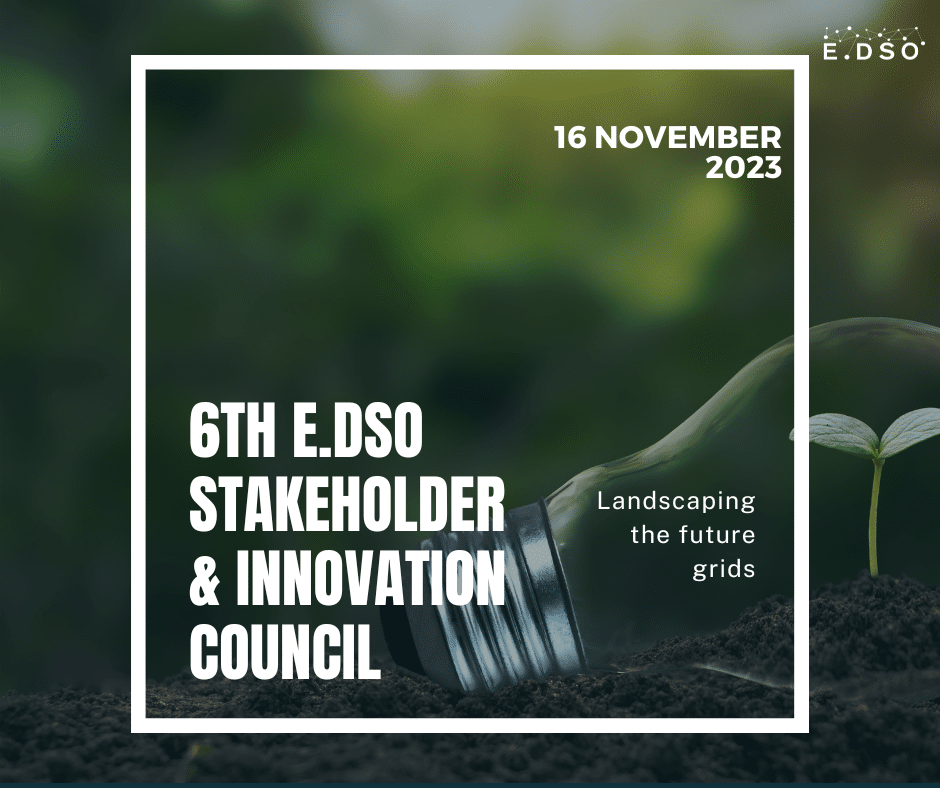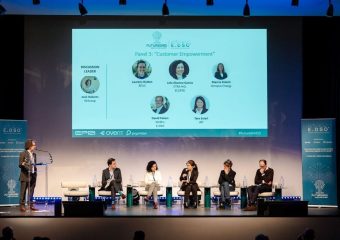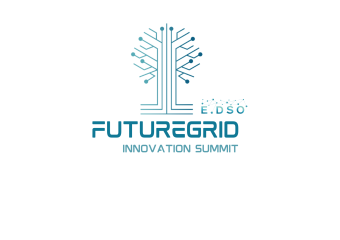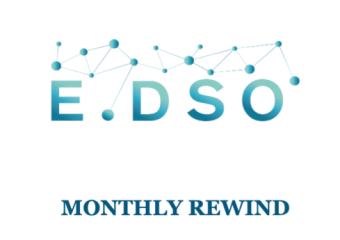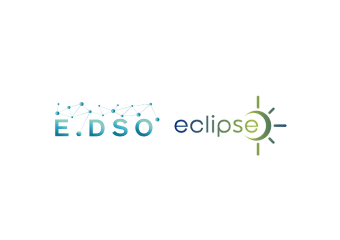The 6th edition of E.DSO Stakeholder & Innovation Council (SIC), a premier event for discussions on the future of the energy sector closed its deliberations yesterday (16 November 2023). The event set against a dynamic context, coinciding with discussions on the Energy Market Design (EMD) reform trilogues on the same day and following the recent 15th Citizens Energy Forum held in Dublin.
This year edition theme “Landscaping Future Grids & Customers: Defining Innovation, Regulation, and Expectations” guided stakeholders through the complex interplay between innovation, regulation, and the expectations of customers.
The event unfolded as a melting pot of ideas focusing on the pressing issues for Distribution System Operators (DSOs), the transformative power of anticipatory investment, and the collaborative effort required to drive the electricity market towards resilient and robust distribution grids. The event was jointly moderated by Roberto Zangrandi, E.DSO Secretary General and Tzeni Varfi, E.DSO Principal.
David Peters, E.DSO Vice-Chair and Chief Transition Officer within the Executive Board of Stedin, opened the event highlighting that” Landscaping the future is crucial because we recognise the impracticality of focusing on short-term energy considerations. The time is short!”
He further stated that “Equally important is to improve the interplay between the grids and the customers’ expectations. As we regulate for the future, we must align our strategies with the customers’ needs.”
The keynote speech of this year was delivered via a video message by MEP Nicolás González Casares, Rapporteur of the Electricity Market Design (EMD) reform. The address stressed the pressing need to strike a delicate balance between network reinforcement and the efficient use of available capacity.
González Casares further highlighted the significance of promoting anticipatory investments as a key strategy within the reform. This aims to proactively address future challenges and demands in the electricity sector, ensuring a resilient and responsive energy infrastructure.
The event catalysed discussion on three main themes:
- Panel 1: Understanding the energy landscape: Regulating grids for the future & their interplay with customer expectations.
- Panel 2: Industry Collaboration for Grid Transformation: Future-Proofing Grid Infrastructure & investments.
- Panel 3: Design Thinking for Customer-Centric Solutions: Commitment to Action and Collaboration.
Central to the discussion was the importance in anticipating grid expansion needs. Speakers highlighted the importance of investment strategies to fortify the distribution grids against future demands. Speakers advocated for a pragmatic approach and dynamic regulatory environment, steering away from conventional thinking. They pinpointed three contributing factors to the current grid congestion issues, as experience dramatically in the Netherlands: soaring solar and EV adoption, unsuccessful grid expansion, and insufficient policy considerations.
The discussion on future grid infrastructure, led by an array of industry leaders, evolved around smart grids and innovative storage solutions in enhancing grid capacity and reliability. The importance of collaborative innovation in driving the future of energy was also considered.
The speakers unveiled a compelling roadmap to navigate the complexity of grid infrastructure. This roadmap hinges on three steps: fully deploying existing technologies, prioritising firm capacity for Electric Vehicles (EVs), and expanding and modernising the grid to accommodate future demands.
The discussion thereafter shifted the spotlight into challenges facing a customer-centric energy system. Addressing issues of speed, scalability, resilience, and sustainability, speakers stressed the need for cutting-edge technologies to manage energy sharing and fluctuations. The key role of smart meters as tools providing essential data for efficient energy management was reiterated. The overarching goal? To not just include customers in the transition but to protect their interests, ensuring an inclusive and informed participation.
In a captivating segment, speakers expanded on the advantages of energy sharing, both from broader societal and environmental advantages but equally in terms of flexibility. The central need for clear responsibilities, facilitated through robust regulation for energy communities, resonated as a central concern.
From consumer-centric strategies to cooperation visions, the event provided a panoramic view of the evolving roles and responsibilities within the energy sector.
E.DSO express great appreciation to speakers and attendees for making this year Council a success.

